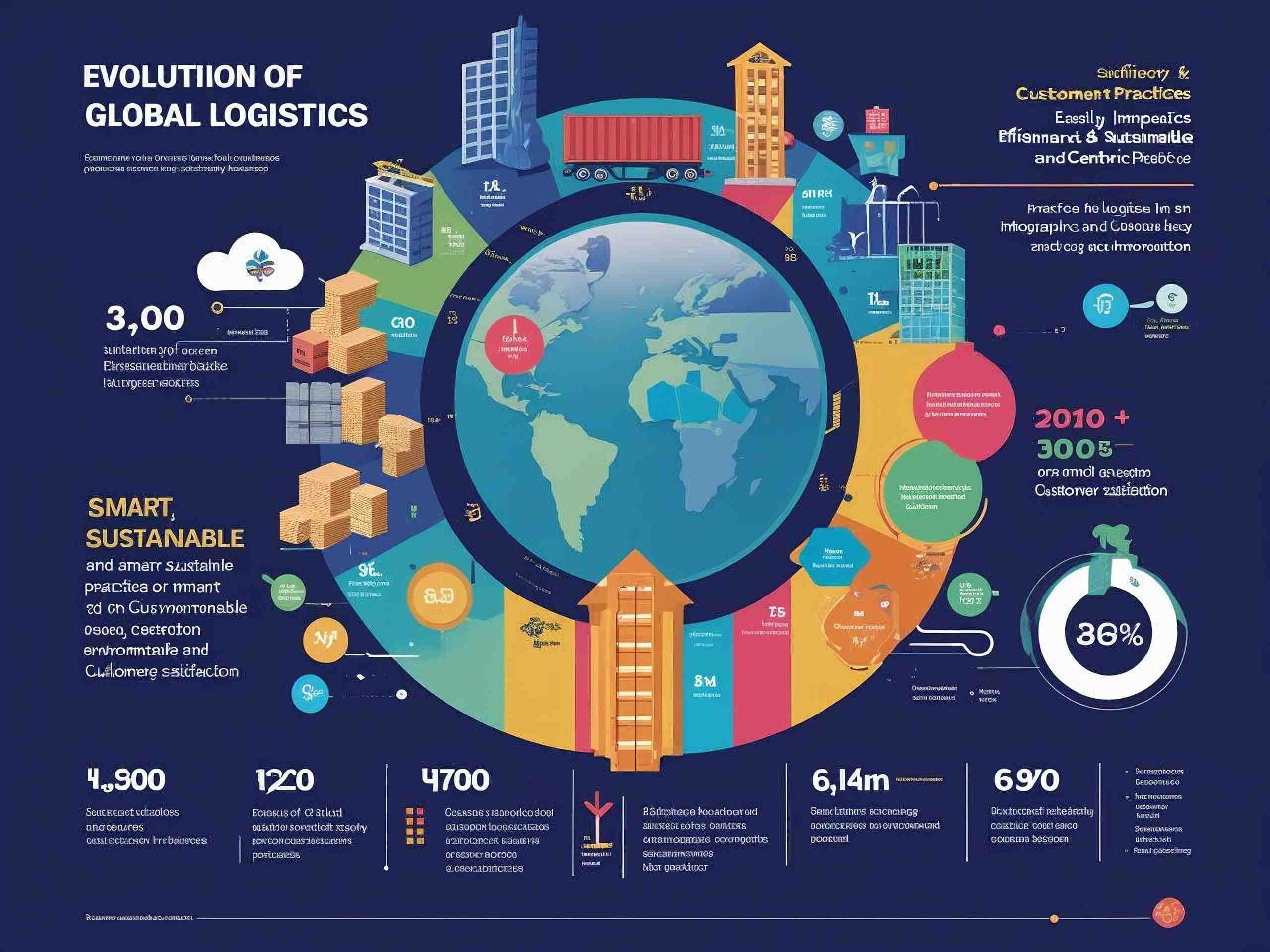
The logistics industry, a global engine of commerce, is undergoing a profound transformation. Traditionally focused on efficiency, cost reduction, and the seamless movement of goods, the industry is now being reshaped by rapid technological innovation—including automation, AI, robotics, and advanced data analytics.
Yet beyond the marvels of tech lies a quieter, deeper revolution: the evolution of the human workforce. This is not a tale of machines replacing humans, but one of roles evolving, skills transforming, and a new human-centric era emerging—where creativity and technology coexist to drive next-generation supply chains.
The future of logistics isn’t just about smarter robots—it’s about smarter people working alongside them.
The traditional image of a logistics worker—focused on manual labor and repetitive tasks—is fading. Today’s warehouses feature autonomous robots for picking and packing, intelligent conveyors for sorting, and AI-powered route planning tools for dispatch.
But this shift doesn't erase jobs—it redefines them.
New, high-skill roles are emerging:
Data Analysts to extract insights from complex datasets
Robotics Technicians to maintain and troubleshoot automation
AI Trainers and Machine Learning Engineers to refine logistics intelligence
Supply Chain Strategists and Automation Specialists to manage technological ecosystems
The emphasis has shifted from physical doing to analytical managing, proactive optimizing, and strategic leading.
The result? Logistics professionals are now orchestrators of complex tech-driven operations, continuously seeking innovation, efficiency, and resilience.
In this fast-evolving space, upskilling and reskilling are no longer optional—they’re essential.
Today's logistics professionals must gain:
Digital literacy to work with automated systems
Data interpretation skills for informed decision-making
Systems thinking to understand integration across platforms like WMS, TMS, and IoT sensors
But it’s not just about technical skills. Human-centric abilities are becoming more valuable than ever:
Critical Thinking for handling unexpected disruptions
Complex Problem-Solving to drive innovation
Adaptability and Creativity to lead in change
Collaboration and Emotional Intelligence for managing human-machine teams
As automation grows, so does the need for human intuition and judgment.
Leading logistics firms are investing in internal academies, online certification platforms, and education partnerships to build a culture of continuous learning.
Forget the myth of man vs. machine. In modern logistics, it’s all about human + machine.
AI can:
Predict demand
Optimize delivery routes
Flag supply chain risks
Humans can:
Make strategic decisions
Use empathy and context
Handle exceptions and nuance
This symbiosis is called augmented intelligence—where AI enhances, not replaces, human roles.
Example: A dispatcher using AI for real-time rerouting becomes exponentially more effective, managing larger fleets with fewer delays.
AI brings speed; humans bring strategy and ethics. Together, they redefine performance.
To stay ahead, logistics companies must reimagine how they attract and retain top talent.
It starts with rebranding logistics: from manual labor to a cutting-edge, tech-forward industry.
Forward-thinking employers now seek professionals in:
Data Science
Computer Engineering
Robotics
Even Behavioral Psychology (to improve human-machine interaction)
To retain these talents, companies must foster a future-ready culture:
Embrace innovation
Encourage cross-functional collaboration
Promote career growth through tech exposure
Provide competitive compensation and purpose-driven work
The best talent isn’t chasing jobs—they’re chasing growth, impact, and vision.
Looking 5–10 years ahead, logistics professionals will need to be hybrid thinkers—tech-savvy strategists who thrive in both physical operations and digital ecosystems.
Key traits of tomorrow's logistics leaders:
Rapid Learning of new tools
Resilience in uncertainty
Creativity in solving global challenges
Fluency in both machines and people
In an ever-changing world, adaptability will outshine even technical mastery.
The supply chains of the future won’t just be fast or cheap—they’ll be smart, resilient, and human-empowered.
The wave of automation isn’t a threat to the human workforce—it’s an invitation to rise.
Yes, machines are taking over repetitive tasks, but in doing so, they’re elevating human potential—freeing people to focus on what truly matters: strategic thinking, creative problem-solving, and ethical leadership.
To succeed in this transformative era, the logistics industry must do more than invest in tech. It must invest in people.
Key steps forward:
Prioritize lifelong learning
Promote AI-human collaboration
Build diverse, cross-disciplinary teams
Reimagine logistics as a strategic, tech-empowered career path
The future of logistics is not less human, but profoundly more human—amplified by technology, inspired by innovation, and driven by purpose.